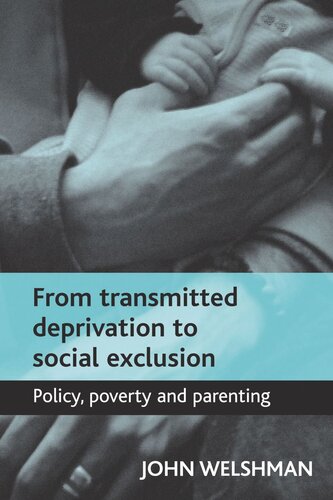

Most ebook files are in PDF format, so you can easily read them using various software such as Foxit Reader or directly on the Google Chrome browser.
Some ebook files are released by publishers in other formats such as .awz, .mobi, .epub, .fb2, etc. You may need to install specific software to read these formats on mobile/PC, such as Calibre.
Please read the tutorial at this link: https://ebookbell.com/faq
We offer FREE conversion to the popular formats you request; however, this may take some time. Therefore, right after payment, please email us, and we will try to provide the service as quickly as possible.
For some exceptional file formats or broken links (if any), please refrain from opening any disputes. Instead, email us first, and we will try to assist within a maximum of 6 hours.
EbookBell Team

5.0
108 reviewsJohn Welshman's new book fills a major gap in social policy: the history of debates over 'transmitted deprivation', and their relationship with current initiatives on social exclusion. The book explores the content and background to Sir Keith Joseph's famous 'cycle of deprivation' speech in 1972, examining his own personality and family background, his concern with 'problem families', and the wider policy context of the early 1970s. Tracing the direction taken by the DHSS-SSRC Research Programme on Transmitted Deprivation, it seeks to understand why the Programme was set up, and why it took the direction it did. With this background, the book explores New Labour's approach to child poverty, initiatives such as Sure Start, the influence of research on inter-generational continuities, and its new stance on social exclusion. The author argues that, while earlier writers have acknowledged the intellectual debt that New Labour owes to Joseph, and noted similarities between current policy approaches to child poverty and earlier debates, the Government's most recent attempts to tackle social exclusion mean that these continuities are now more striking than ever before. Making extensive use of archival sources, private papers, contemporary published documents, and oral interviews with retired civil servants and social scientists, Policy, Poverty and Parenting is the only book-length treatment of this important but neglected strand of the history of social policy. It will be of interest to students and researchers working on contemporary history, social policy, political science, public policy, sociology, and public health.